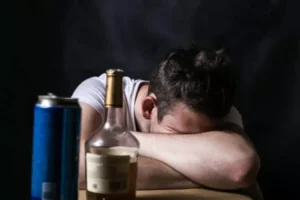
Family members need to get involved in their own recovery from codependency. Then, you and your loved ones can work alcoholism together as a team to recover together and avoid holiday relapse. Some families might consider the holidays an inappropriate time to help a loved one get into addiction treatment when, in fact, it could be an ideal opportunity. For many of the reasons mentioned earlier, substance abuse tends to ramp up over the holidays. Addiction treatment initiated during the holidays could be the best gift you give to your family, your friends and yourself.

Go to Meeting(s) and Sober Holiday Events

Set aside dates for visiting family and friends, baking, shopping, and other holiday-related activities. Making lists can help you remain organized and prevent the anxiety of last-minute scrambling. Dysfunctional family dynamics are often on full display over the holidays and may be triggering for those in recovery. To keep your recovery journey on track, seek out support services sober holidays as needed during this at times stressful season. Alcohol-impaired driving remains a leading cause of fatal traffic crashes in the United States, especially during the holiday season. In 2022, 13,524 people were killed in alcohol-impaired driving crashes, making up 32 percent of all traffic fatalities.
Find Treatment
You could also plan to attend holiday events with a supportive friend or loved one who can help keep you grounded in your sobriety goals. Family gatherings can add emotional stress, bringing unresolved conflicts or past issues to the surface. These interactions may trigger memories that evoke sadness, frustration, or guilt—feelings that can challenge someone’s mental resilience during recovery. For many, there’s an expectation to “join in the holiday spirit,” which might feel particularly overwhelming when managing emotional triggers and maintaining sobriety. A “Dry Holiday” is a holiday or celebration where alcohol is intentionally excluded or avoided.
Recognize the Gradual Nature of Relapse

And if you see an impaired driver on the road, please call 911. The longer you stay at a holiday event, the bigger the risk you’ll overindulge. You don’t have to set a hard deadline, but if others are drinking and you can see the event is getting out of hand, feel free to excuse yourself. While working toward and hoping for the best, it’s important to remember that the holidays are also a season of forgiveness — not just for others, but for yourself. If you stumble during this time, don’t view it as the end of your recovery. Relapse — whether mental, emotional, or physical — isn’t a failure.
If you’re finding it particularly challenging to stay sober during the holidays, don’t hesitate to seek professional help. Therapists or counselors who specialize in addiction recovery can offer guidance and strategies tailored to your needs. One of the most effective ways to cope with holiday stress is planning ahead.
Recovery Coaching
- And it’s important to have someone to text or call if you find yourself struggling with alcohol cravings at a holiday event or in general.
- For most people, the holidays are a time of joy and celebration.
- However, they can also be challenging for those who are committed to maintaining their sobriety.
- Recovery is not a solo journey; having a support system is especially crucial during the holidays.
And that’s why when someone offers you a drink, you say, ‘Hey, no thank you,’” said Wilder. “In fact, even just having a glass of seltzer with some chopped up lemon in there, it makes you feel like you’re social,” said Wilder. “Give yourself that opportunity to be social, be present, and most importantly, be responsible,” said Wilder, a life coach.

Staying Positive: Embracing the Holidays as a Time of Healing
- Instead of going to your work holiday party or family’s home alone, bring a sober friend or family member who can provide support and encouragement.
- Our programs provide compassionate, evidenced-based therapies, medical detox services, residential treatment, outpatient treatment and virtual treatment programs.
- Evidence suggests the holidays are typically very stressful for most.
- If you will be drinking hot drinks, festive mugs are a great way to serve them.
- At Free by the Sea, we understand that the holidays can be a challenging and triggering time for individuals in recovery.
- So, it’s very likely any holiday party you go to will have alcohol at it.
The National Alliance on Mental Illness (NAMI) highlights the many benefits of volunteering, from lowering stress to increasing happiness, confidence, and self-esteem. Giving back is a great way to stay busy and foster positivity during the holidays while creating a sense of purpose. Navigating the holidays can feel overwhelming, especially when surrounded by potential relapse triggers. Recognizing these triggers is the first step in managing them. From groceries for entertaining to gifts for family and friends. Whether it’s frying up latkes for Hanukkah, or crafting Christmas ornaments around the fireplace, there are many holiday traditions that don’t require a buzz.
- A Christmas gin mocktail brings both together with NA gin for a beautiful ruby drink that will put you instantly in the Christmas spirit.
- Staying sober during the holidays is an essential part of maintaining your recovery journey.
- In my opinion, sobriety during the holidays is a lot like the end of Home Alone.
- Then you can break down those defensive walls and forgive other people, and you can approach the holiday season with a stronger sense of gratitude.
Step 3: Prepare for Common Holiday Scenarios
Make any adjustments needed and establish your strategies for the future to keep you on the path to recovery. Perhaps journal about your thoughts, feelings, and experiences so you can review them in planning ahead for the next year. It’s easy to forget about maintaining your recovery routine when you’re in the middle of holiday chaos. It’s very important to prioritize your health and be mindful of your recovery coping mechanisms.
- Every decision to remain sober, especially in challenging environments, is a victory.
- If you stumble during this time, don’t view it as the end of your recovery.
- That’s what families across the country will be feeling this holiday season as seats remain empty at their dinner tables.
- Statistics show that December is the month that Americans spend the most on alcohol.
- These tools can provide motivation, daily tips, and even connect you with a community of people who are also working to maintain their sobriety.
- Prevention is all about building up a “wide margin” for life.
How to Seek Support if You’re at Risk of Relapse
Try these 12 tactics for staying in recovery during the 12 days of Christmas. One of the most important things you can do is to cultivate insight and awareness, because even small, subtle changes to our routine can feel really big. Holiday travel, shopping, family gatherings, and other social commitments can all increase our stress this time of year.
This could include decorating your home, baking treats, or watching holiday movies. The bottom line is that a sober holiday is much more =https://ecosoberhouse.com/ achievable when the added stress is brought down to a minimum. Pressure to drink (real or perceived) can make some gatherings feel uncomfortable and downright stressful. Moments when friends ask why you’re not indulging in the spiked eggnog, or insist that you participate in a champagne-fueled toast on New Year’s Eve.